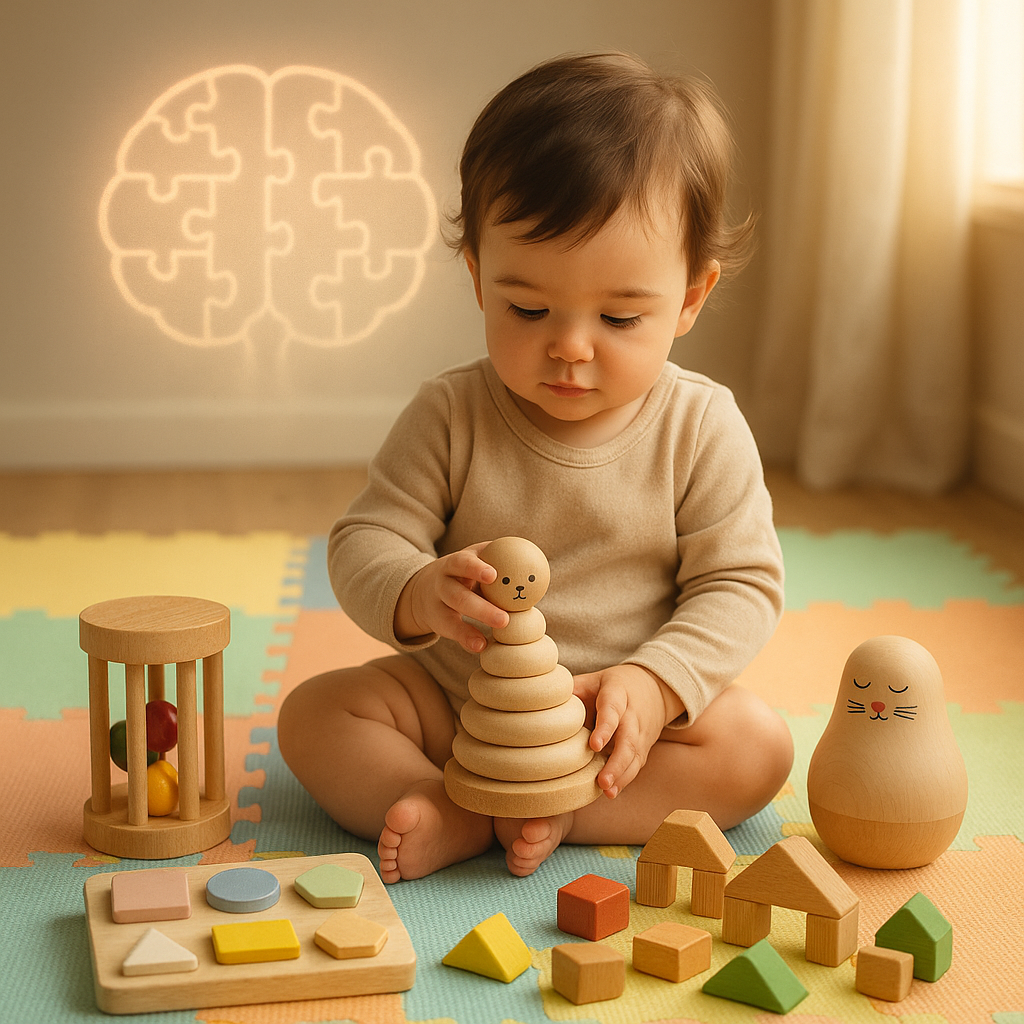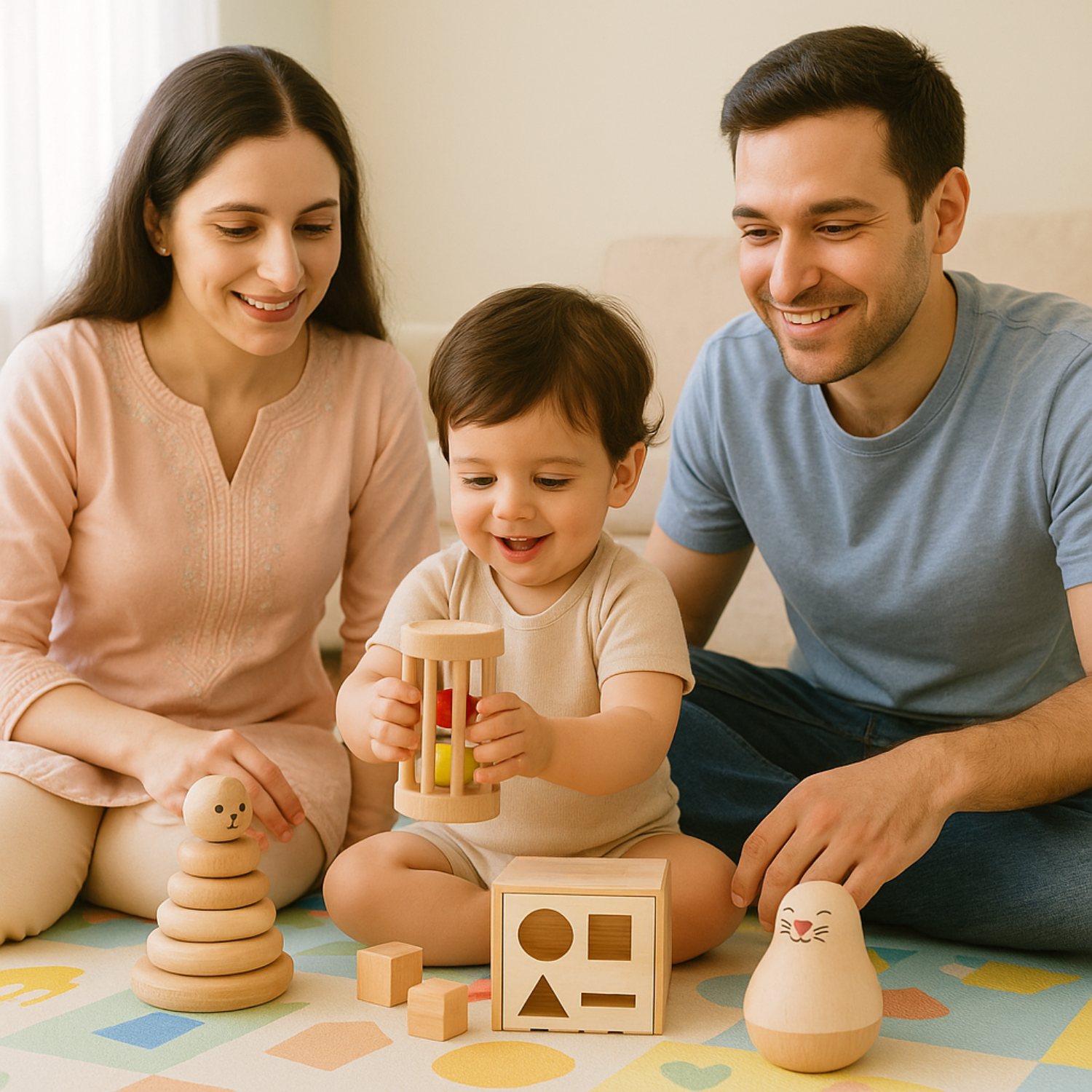
How do toys stimulate cognitive development?
How Do Toys Stimulate Cognitive Development?
Toys have always been a fundamental part of childhood. They are not merely objects of amusement; they are tools that can play a pivotal role in the cognitive development of children. The interaction between a child and their toys goes beyond simple play—it is an essential aspect of learning and growing. Through toys, children explore the world around them, develop critical thinking skills, enhance their creativity, and build social and emotional intelligence. This blog post delves into how toys stimulate cognitive development and why they are so crucial in the formative years.
The Role of Play in Cognitive Development
Before diving into the specifics of how toys contribute to cognitive growth, it is essential to understand the concept of play. Play is a natural and instinctive behavior that enables children to explore their environment, understand new concepts, and practice skills. The famous child psychologist Jean Piaget proposed that play is a vital part of cognitive development. Through play, children engage in various stages of cognitive development, from sensory-motor skills in infancy to complex logical reasoning and abstract thought in later years.
Toys serve as the tools through which this play occurs. They are the medium that translates abstract concepts into tangible experiences. Whether it’s a rattle for an infant, a puzzle for a preschooler, or a construction set for an older child, toys provide the stimuli necessary for cognitive growth.
Sensory Stimulation and Motor Skills
One of the first ways toys aid in cognitive development is through sensory stimulation. For infants, toys like rattles, soft toys, and teething rings offer a multi-sensory experience. These toys often come in various textures, colors, and shapes, which help in developing the senses of sight, touch, and hearing. When an infant shakes a rattle, they are not only entertained by the sound but also begin to understand cause and effect, a fundamental cognitive skill.
As children grow, toys that require more complex motor skills come into play. Blocks, stacking rings, and shape sorters encourage fine motor development and hand-eye coordination. When a toddler attempts to fit a square peg into a square hole, they are engaging in problem-solving and spatial reasoning, which are critical components of cognitive development.
Language and Communication Skills
Toys also play a significant role in language development. From a young age, toys like picture books, talking dolls, and interactive games introduce children to new vocabulary. These toys often encourage verbal interaction, prompting children to name objects, describe actions, and engage in simple dialogues. This interaction is crucial for developing both receptive and expressive language skills.
As children grow older, more complex toys like board games and storytelling kits promote language and communication skills. These toys often require children to follow instructions, negotiate with peers, and articulate their thoughts and ideas. Through these activities, children learn the nuances of language, including syntax, grammar, and social communication skills, all of which are vital for cognitive development.
Problem-Solving and Critical Thinking
Toys that challenge a child’s problem-solving abilities are some of the most effective tools for cognitive development. Puzzles, building blocks, and strategy games require children to think critically, plan ahead, and consider various outcomes. For instance, when a child works on a puzzle, they must figure out how different pieces fit together, which develops their spatial reasoning and logic.
Creativity and Imagination
Toys that encourage imaginative play are instrumental in cognitive development. Dolls, action figures, dress-up costumes, and pretend playsets allow children to step into different roles and scenarios. This type of play is crucial for developing creativity and abstract thinking. When a child pretends to be a doctor, a chef, or a superhero, they are not just having fun; they are experimenting with different perspectives and problem-solving strategies.
Imaginative play also allows children to process their emotions and experiences. For example, a child might use a doll to reenact a visit to the doctor, helping them to understand and cope with the experience. This type of play is linked to emotional intelligence, as it helps children develop empathy, self-regulation, and social understanding.
Social Skills and Emotional Intelligence
Toys that promote group play, such as board games, sports equipment, and cooperative building sets, are excellent for developing social skills and emotional intelligence. These toys require children to interact with others, follow rules, take turns, and work towards a common goal. Through these interactions, children learn important social skills such as communication, cooperation, and conflict resolution.
Moreover, group play with toys helps children to understand social dynamics and develop a sense of empathy. They learn to recognize and respond to the emotions of others, which is a key aspect of emotional intelligence. For instance, when playing a board game, children must navigate winning and losing gracefully, understand fairness, and deal with the emotions associated with competition.
Toys and Executive Functioning Skills
Executive functioning skills, which include working memory, cognitive flexibility, and inhibitory control, are crucial for success in both academic and everyday life. Certain toys are particularly effective in developing these skills. Memory games, for instance, enhance working memory by requiring children to remember the locations of matching cards. Strategy games, like chess or checkers, promote cognitive flexibility and planning as children must anticipate their opponent’s moves and adjust their strategy accordingly.
Toys that require rule-following, such as card games or building sets with specific instructions, help develop inhibitory control. Children must resist the impulse to take shortcuts or skip steps and instead follow the rules to achieve the desired outcome. This discipline in play translates to better self-control and decision-making in other areas of life.



Leave a comment
This site is protected by hCaptcha and the hCaptcha Privacy Policy and Terms of Service apply.